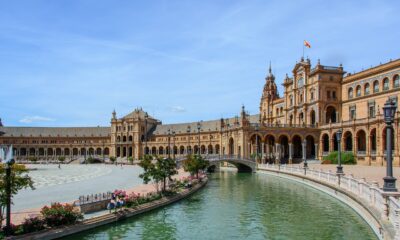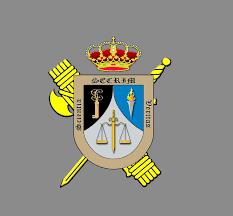

Spanish National News
MEASURING POLITICAL CORRUPTION
It may not come as a particularly big surprise but people don´t trust politicians. In actual fact, a recent survey conducted in Spain revealed that only 4% of the population actually do trust politicians, although 45% trust the police, which dips…

It may not come as a particularly big surprise but people don´t trust politicians. In actual fact, a recent survey conducted in Spain revealed that only 4% of the population actually do trust politicians, although 45% trust the police, which dips to 39% when cases are handed to the judicial system for processing. Trade unions don´t come off too well either, with only 6% of those who were asked trusting them.
In fact, the opinion on political corruption has also swung, with a staggering 93% of the population now believing that this is a national matter, rather than just the domain of local councillors. The recent wave of large scale corruption cases in the media plays no small part in this opinion, but over the last ten years, there have been 800 cases of corruption filed, with nearly 2,000 people arrested and questioned.
To indicate how widespread a problem this is, academics at the University of Laguna on the island of Tenerife have created an “urban map of corruption”, which shows quite clearly where the history of these cases lies.
According to the data used to produce the map, which was all cases between the years 2000 and 2010, so not including the most recent cases, 56.1% of the entire population of Spain have suffered a case of corruption within their municipality. To turn that figure around, it obviously means that there are a large number of residents who live in a fair and law abiding area, with no corruption or wrongdoing having been identified.
The data also shows that 2006 was a key year in triggering awareness of cases of corruption, as there were actually very few recorded or reporting on prior to that time. It is perhaps of no coincidence that the Spanish newspapers started to report their findings on two of the biggest cases of their time, Operación Ballena Blanca in March 2005, an operation launched by the Spanish police against money laundering centred around Marbella, the largest case of its kind to date, with over a thousand companies involved and 250 million euro seized, resulting in some 50 arrests of different nationality.
The second case being that of Operación Malaya, in 2006, again focussing on Marbella, in a case that has still been in the news as recently as this year, with the prosecution of singer Isabel Pantoja and former mayor of Marbella, Julián Muñoz.
The explanation for the timing of both of these cases was put down to the peak in property sales at the time, which subsequently resulted in a specialist team of investigators being formed, The Economic and Revenue Crime Unit, or UDEF, with less than 100 officers operating nationally, which is now covered by a compliment of almost 300 investigators.
The study from the University of La Laguna recorded 414 cases up to 2008, another 262 between 2009 and June 2010, which reflected a 63% increase, a percentage that matches the data from the anticorruption investigators. The data almost dries up then however, which some say is because the anti-corruption prosecutor reduced the number of steps required in investigations in 2010, but more so due to the burst of the housing bubble between 2008 and 2009. According to other reports however, the figure would be close to 800.
These numbers are consistent with a study by Elena Costas-Pérez, Albert Solé-Ollé and Pilar Sorribas-Navarro, published in 2012 in the European Journal of Political Economy (Corruption scandals, voter information, and accountability), which states that, “We collected news releases published between 1996 and 2009”, according to Elena Costas, summarizing that the cases prosecuted and scandals rises to 814 in January 2009, and that these cases involve 565 municipalities.
In the study, it is revealed that Andalusia has the largest number of cases recorded, with a total of 154, followed by Valencia with 94. But, it is Murcia which has a greater percentage of municipalities affected, at 57.8%, partly because it is community with fewer municipalities within it.
It also makes sense that the two largest political groups are also the largest involved in political corruption cases, with the Partido Popular winning that stake with 44% of the municipalities governed, whereas the PSOE are the ruling party in 31.2% of those involved in scandal.
There are still many cases working their way through the court system, some known by the operational name and the amount of times they are highlighted in the press, some even spreading into global newsrooms, such as the increasing complex caso Gürtel, as well as the caso Nóos, but we must also remember that the problem of corruption is still very much an issue at a local level too, with barely a municipality in the ex-pat rich area of the Valencia community not being affected.
However, there is also much to be gained by accusation of political corruption, with statistics also showing that voters turn away from parties mentioned in such cases, with the average loss in voters as a result of these cases rising from 4% to 9% in the 2007 elections.
As a conclusion, the report from the university points out that 88% of all of these cases refer to land or property, and they draw similarities to the Bourbon Restoration, however, they also say that, “The difference is that the XXI century chieftains prefer to keep money in Switzerland and other tax havens.”
Filed under: http://www.theleader.info/article/39569/
Car and Motor Insurance | Spanish Home Insurance | International Money Transfers | Send Money to Spain | Spain Property | Online International Payments | Property in Spain
Costa Blanca Property for Sale | Cabo Roig Property for Sale | International Payments |
-

 Court News2 weeks ago
Court News2 weeks ago66-year-old suspect sexual assault surfer on trial
-

 Crime and Policing2 weeks ago
Crime and Policing2 weeks agoThe Guardia Civil arrests three people for illegal street race
-

 Driving in Spain2 weeks ago
Driving in Spain2 weeks agoHow Long Does it take to Receive a Traffic Fine Through the Post?
-

 Crime and Policing2 weeks ago
Crime and Policing2 weeks agoWarning issued over latest text message scam























